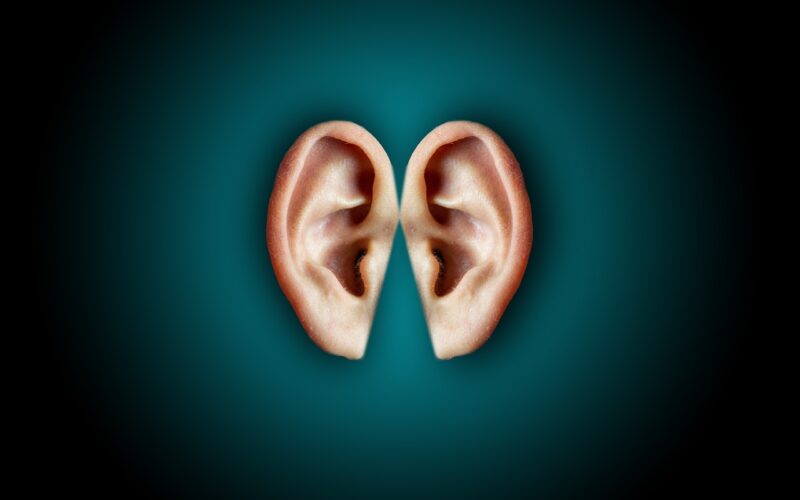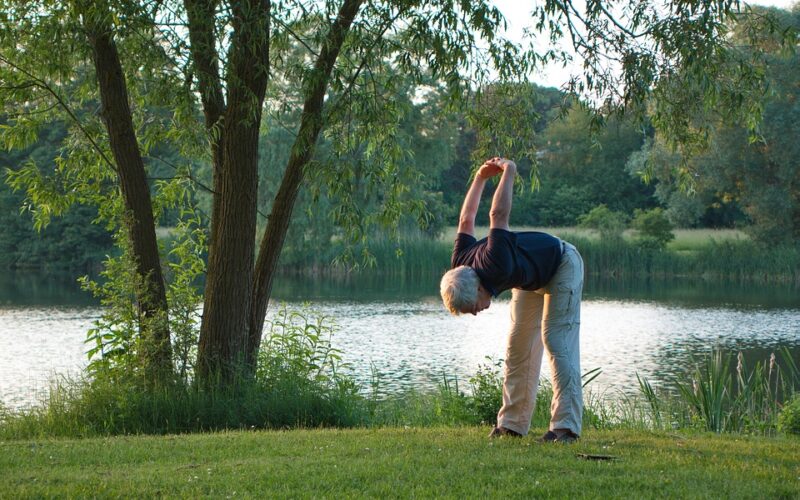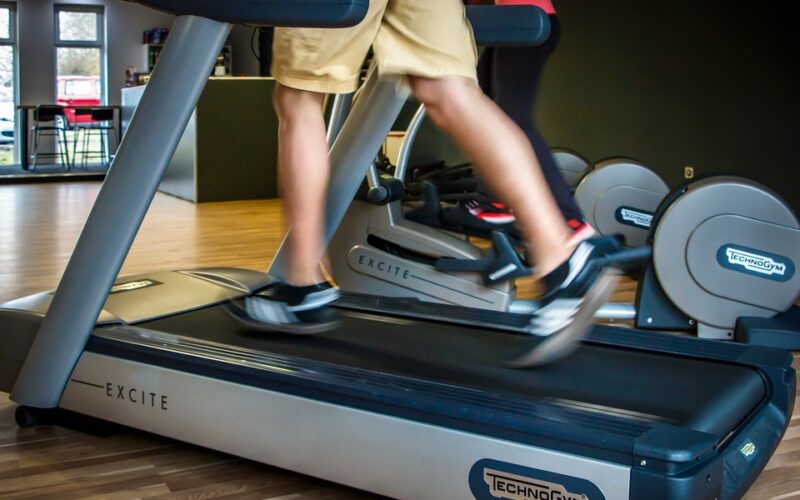Start Young
As the ageing process unfolds, maintaining health becomes even more crucial in order to enjoy a high quality of life and independence. The adoption of healthy habits early on serves as an investment in one's future wellbeing; this can include incorporating a balanced diet, regular physical activity, and mental exercises which can delay or prevent the onset of age-related conditions.
Furthermore, these practices can contribute to longevity and the retention of cognitive functions, ensuring that individuals not only live longer but also continue to live well.
The foundation of a healthy lifestyle in youth
A balanced diet is critical for maintaining long-term health and wellbeing.
It consists of a variety of foods in the right proportions, including whole grains, lean proteins, healthy fats, and an abundance of fruits and vegetables, providing the necessary vitamins, minerals, and nutrients. Adequate hydration is equally important, as water supports multiple bodily functions.
Nutritional diversity not only helps in the prevention of non-communicable diseases such as obesity, diabetes, and heart disease but also plays a role in mental health. Good nutrition enhances cognitive function and has been linked to a lower incidence of depression and anxiety.
Maintain overall health
Physical activity is not a one-size-fits-all affair; it is crucial to consider the most appropriate forms of exercise for different age groups to maximise benefits and minimise the risk of injury.
For instance, children and adolescents can benefit immensely from play-based activities and sports that promote flexibility, bone strength, and coordination.
Adults, on the other hand, might opt for a mix of aerobic exercises, strength training, and flexibility workouts to maintain overall health and combat the stresses of daily life. Meanwhile, older adults should focus on activities that maintain mobility and balance, such as Tai Chi, gentle yoga, or water aerobics, to preserve independence and reduce the risk of falls.
Regardless of age, regular exercise is vital for maintaining health, preventing chronic diseases, and improving mood, proving that moving our bodies is integral from the playground to our golden years.
Regular interactions with friends
Mental health, often overshadowed by physical health, is equally crucial for overall well-being.
Sustaining social connections plays a pivotal role in preserving mental health, as it fosters a sense of belonging and provides support networks during challenging times. In an increasingly digital world, it's vital to maintain these connections in tangible ways to combat feelings of isolation and promote mental resilience.
Regular interactions with friends, family, and the community can significantly enhance mood and contribute to a more positive outlook on life.
Good eating habits to cultivate early
Developing a healthy relationship with food is crucial for long-term well-being and can be fostered by adopting a positive mindset towards eating. It involves seeing food as nourishment, rather than a source of anxiety or a means of emotional coping.
Practising mindful eating, where one pays full attention to the experience of eating and savours each bite, can help individuals become more attuned to their hunger and satiety signals. Incorporating a diverse range of foods, including plenty of fruits, vegetables, whole grains, and lean proteins, ensures a balanced intake of nutrients.
Moreover, reframing the concept of 'cheat meals' to 'treat meals' can remove the guilt associated with enjoying foods that are typically labelled as indulgences, allowing for a more flexible and sustainable approach to dieting.
Maintain a steady energy level
To create a balanced meal centred around whole foods, start by filling half your plate with a colourful variety of vegetables and fruits, packed with vital vitamins and minerals.
Incorporate a quarter plate of whole grains like brown rice, quinoa, or whole wheat bread for your fibre needs and to maintain a steady energy level throughout the day.
The remaining quarter should consist of high-quality proteins, such as legumes, tofu, fish or lean meats, to support muscle repair and growth. Don't forget to add a small portion of healthy fats, such as avocados, nuts, or seeds, which are essential for brain health and hormone production.
For flavour and additional nutrients, garnish your meals with herbs and spices instead of high-sodium sauces.
Managing portion sizes
To cultivate the practice of mindful eating, begin by tuning into your body's hunger signals and pausing before automatically reaching for food. Eating slowly and without the distraction of technology allows you to savour each bite and recognise when you are comfortably full.
Managing portion sizes can be simplified by using smaller plates, which naturally encourage smaller servings, and by keeping seconds out of immediate reach. Additionally, it's helpful to become familiar with standard serving sizes and to allocate portions accordingly before starting to eat.
Remember, mindfulness is about acknowledging and enjoying your food, which can lead to a more satisfying and healthy relationship with your meals.
Building and maintaining an Exercise Routine
In an era where sedentary lifestyles are becoming more commonplace, it's vital to seize every opportunity for movement. Incorporating exercise into daily tasks – such as taking the stairs instead of the lift, cycling to work, or even standing desks – can have a profound effect on overall well-being.
Breaking up long periods of sitting with short bursts of activity can boost metabolism, improve concentration, and reduce the risk of chronic diseases. It's about making physical activity a seamless, yet integral part of one's daily routine.
Improve flexibility and core strength
When considering exercises that cater to different interests and abilities, it's crucial to incorporate variety to maintain engagement and promote overall well-being. Aquatic exercises, for instance, are exceptional for those with joint issues or who prefer a low-impact workout. Yoga Windsor and Pilates Windsor can improve flexibility and core strength, while also offering a mindful approach to fitness.
For individuals seeking adrenaline and challenge, rock climbing or martial arts may be appealing. Moreover, a personal trainer can provide tailored advice and routines, ensuring that the chosen exercises align with one’s personal goals, interests, and physical capabilities.
Stay accountable and motivated
Staying accountable and motivated when it comes to fitness can be challenging, but having a structured plan can make all the difference. Joining a Windsor gym provides a routine and environment dedicated to exercise, making it easier to stay focused on your goals.
Additionally, enlisting the guidance of a personal trainer can significantly boost motivation. A personal trainer not only offers bespoke workout plans tailored to your individual needs but also provides essential support and encouragement. By tracking your progress and setting achievable targets, a personal trainer helps you remain committed and keeps you on track even on days when your motivation might wane.
The combination of a dedicated gym space and the support of a personal trainer cultivates a sense of accountability, ensuring that your fitness journey is both effective and enjoyable.
Adapting your lifestyle as you age
As metabolism naturally slows with age, it becomes increasingly important to make dietary adjustments to maintain health and energy levels.
Firstly, consider reducing calorie intake slightly while prioritising nutrient-dense foods such as lean proteins, whole grains, fruits, and vegetables which provide essential vitamins and minerals without excess calories. Incorporating more fibrous foods can also aid in digestion and help maintain a feeling of fullness.
In addition, staying hydrated by drinking plenty of water can help manage appetite and improve metabolic function. Mindful eating practices, such as eating slowly and without distraction, allow the body to register satiety cues, which can help prevent overeating.
Low-impact activities like walking
As we age, it becomes increasingly vital to engage in exercises that preserve mobility and fortitude. For individuals in their senior years, low-impact activities like walking, aqua aerobics, and yoga are excellent for maintaining joint health and muscle elasticity.
These exercises are gentle on the body yet effective in keeping the joints mobile and muscles engaged, which is crucial for balance and preventing falls. Regular, moderate exercise can also delay or prevent many diseases associated with aging, such as heart disease, diabetes, and osteoporosis.
It's important for older adults to consult with health professionals before starting any new exercise regime.
Cultivating a heightened awareness
Regular health check-ups are a crucial aspect of maintaining one's health and well-being.
They serve as a preventive measure, identifying potential health issues before they escalate into more serious conditions. Early detection of health problems through routine screenings can lead to simpler, more effective treatment and a better chance of recovery or management of long-term illnesses.
Moreover, cultivating a heightened awareness of one's bodily signals and recognising when something feels awry can prompt timely medical advice, potentially averting adverse health outcomes. It's essential for individuals to engage proactively with their healthcare providers and to schedule check-ups as recommended.
Reducing the risk of chronic diseases
Cultivating healthier habits from a tender age sets the foundation for a lifetime of well-being. It is crucial to instil such habits early on as they tend to stick with individuals into adulthood.
Children who are taught the importance of balanced nutrition and regular physical activity are more likely to carry these values throughout their lives, potentially reducing the risk of chronic diseases.
Moreover, healthy habits go beyond the physical aspects; they also involve nurturing mental health through stress-reducing activities and fostering social skills through team sports and group activities. Through consistency and positive reinforcement, the seeds of a healthier future are sown.
A sense of accomplishment
Embarking on a lifelong journey towards health and well-being is undoubtedly one of the most rewarding commitments one can make.
To facilitate this, incorporating a balanced diet, regular physical activity, and mental health check-ins can dramatically enhance one's quality of life. Staying informed about the latest health trends and research offers the knowledge necessary to make wise choices, while setting achievable goals fosters a sense of accomplishment that fuels further success.
The amalgamation of these elements, coupled with a supportive community, creates a foundation for enduring health and prosperity.









